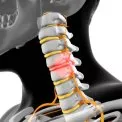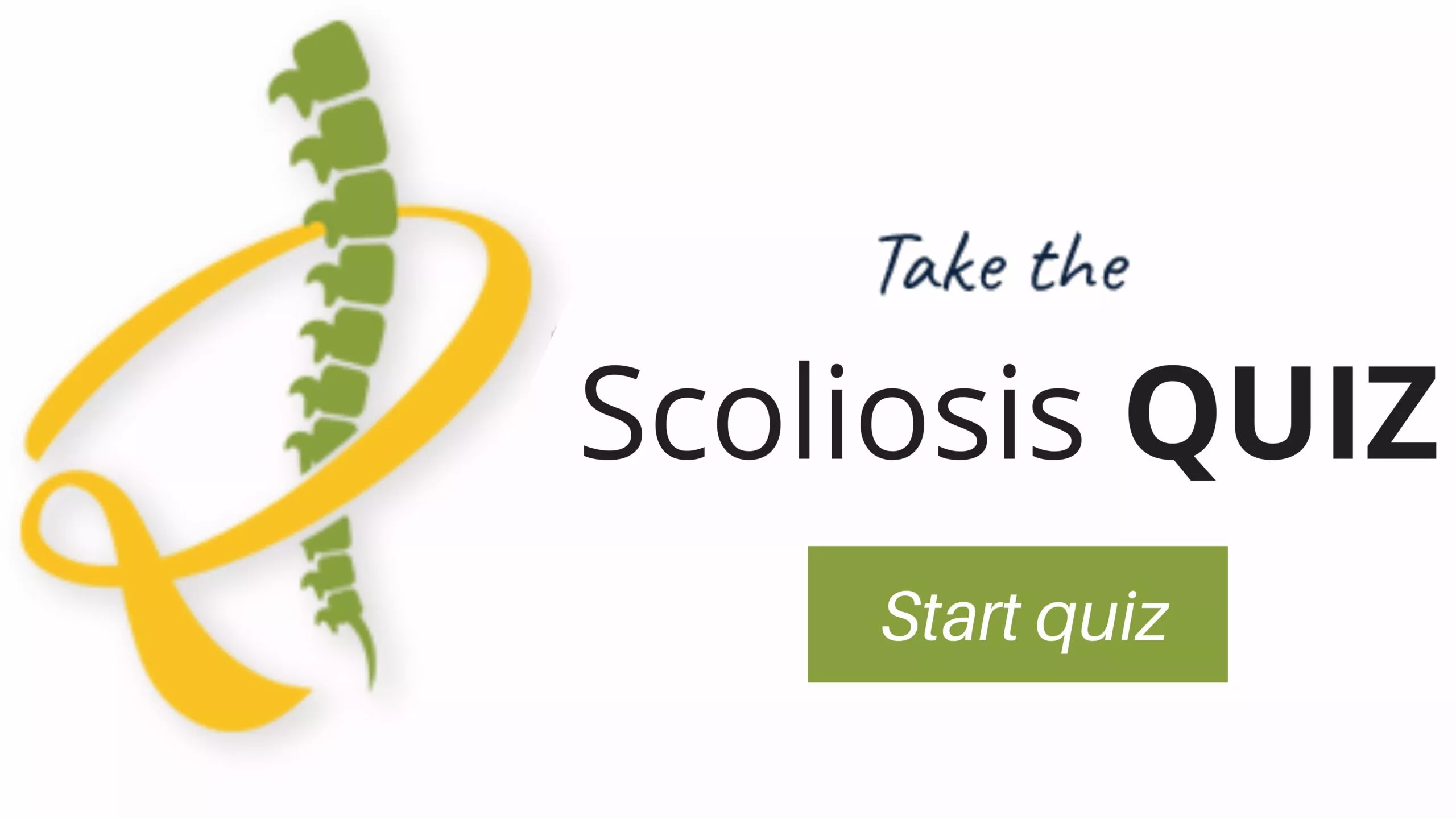
FACET JOINT ARTHRITIS
Facet joint arthritis, also known as facet syndrome, is a condition affecting the small joints located in the back. Specifically, they are between the vertebrae of your spine. These joints, lined with cartilage for smooth movement, can degenerate over time due to aging, injury, or wear and tear. This degeneration leads to the breakdown of cartilage, inflammation, and the formation of bone spurs. The result is pain, stiffness, and reduced flexibility in the neck or lower back. It will get worse with certain movements or prolonged static positions. The pain can sometimes radiate into the buttocks, legs, or shoulders, causing discomfort and impacting daily activities.
3 percent of individuals with progressive curvature may eventually experience severe problems that can include scoliosis and back pain, spinal problems, and nerve compression causing numbness, weakness, and leg pain.
Facet Joint Arthritis
 Facet joint arthritis, also known as facet joint osteoarthritis or facet arthropathy, is a degenerative condition. It is characterized by inflammation and deterioration of the facet joints in the spine. These small joints located between adjacent vertebrae facilitate spinal movement and stability. When affected by arthritis, the facet joints can become painful and stiff, leading to decreased mobility. Therefore, this condition will impair the quality of life for affected individuals. The impact of facet joint arthritis on a person’s daily activities and overall well-being can be significant. It causes chronic pain and limitations in movement that affect both physical and emotional health.
Facet joint arthritis, also known as facet joint osteoarthritis or facet arthropathy, is a degenerative condition. It is characterized by inflammation and deterioration of the facet joints in the spine. These small joints located between adjacent vertebrae facilitate spinal movement and stability. When affected by arthritis, the facet joints can become painful and stiff, leading to decreased mobility. Therefore, this condition will impair the quality of life for affected individuals. The impact of facet joint arthritis on a person’s daily activities and overall well-being can be significant. It causes chronic pain and limitations in movement that affect both physical and emotional health.
Causes
The primary cause of facet joint arthritis is the wear and tear of the cartilage within the facet joints. Over time, repetitive stress on the spine, poor posture, and genetic predisposition can contribute to the development of arthritis in these joints. Additionally, previous spinal injuries and abnormal spinal alignment can clearly accelerate degenerative disc disease. This will increase the risk of facet joint arthritis.
Symptoms
Symptoms of facet joint arthritis typically include localized back pain, stiffness, and decreased range of spine motion. Pain may worsen with certain movements or activities that place stress on the facet joints. For example, bending backward or twisting the spine. Some individuals may also experience referred pain that radiates into the buttocks, hips, or thighs. In severe cases, facet joint arthritis can lead to spinal instability, nerve compression, and debilitating pain.
Questions and Answers
What are the typical symptoms of facet joint arthritis?
Common symptoms of facet joint arthritis include localized back pain, stiffness, and decreased range of motion in the affected area of the spine. Pain may worsen with certain movements or activities that place stress on the facet joints, such as bending backward or twisting the spine. Some individuals may also experience referred pain that radiates into the buttocks, hips, or thighs.
How is facet joint arthritis diagnosed?
Diagnosis of facet joint arthritis often involves a thorough medical history assessment, physical examination, and diagnostic imaging studies such as X-rays, magnetic resonance imaging (MRI), or computed tomography (CT) scans. In some cases, diagnostic facet joint injections may be performed to confirm the diagnosis and provide temporary pain relief.
What treatment options are available for facet joint arthritis?
How it is Diagnosed
Diagnosing facet joint arthritis often begins with a thorough medical history assessment and physical examination. This will evaluate symptoms and identify potential risk factors. Diagnostic imaging studies such as X-rays, magnetic resonance imaging (MRI), or computed tomography (CT) scans aid a diagnosis. These scans help doctors visualize the facet joints and assess the extent of degeneration. In some cases, diagnostic facet joint injections may be performed to confirm the diagnosis and provide temporary pain relief.
Risk Factors
Several factors can increase the risk of developing facet joint arthritis. For instance, advancing age, previous spinal injuries, repetitive spinal stress, obesity, and genetic predisposition all can cause facet joint arthritis. Individuals with occupations or lifestyles involving heavy lifting, bending, or repetitive spinal movements may be at a higher risk of developing arthritis in the facet joints. Additionally, certain medical conditions such as rheumatoid arthritis or ankylosing spondylitis can predispose individuals to facet joint degeneration and arthritis.
Non-Surgical and Surgical Treatment
Treatment of facet joint arthritis typically begins with conservative measures aimed at relieving pain and improving function. Non-surgical treatments may include over-the-counter or prescription medications to reduce inflammation and alleviate pain. Additionally, physical therapy will improve spinal mobility and strengthen supporting muscles, and lifestyle modifications such as weight management and proper body mechanics. If conservative measures fail to provide adequate relief, minimally invasive procedures such as facet joint injections or radiofrequency ablation may be considered to target and disrupt pain signals from the affected joints. In cases of severe pain or spinal instability, surgical options will be necessary. For example, facet joint denervation, spinal fusion, or artificial disc replacement may stabilize the spine and alleviate symptoms.
Complications
Untreated or inadequately managed facet joint arthritis can lead to chronic pain, functional limitations, and decreased quality of life. Persistent inflammation and degeneration of the facet joints may contribute to spinal instability, nerve compression, and progressive disability. In severe cases, facet joint arthritis leads to complications such as spinal deformity and loss of sensation or motor function. In addition, doctors often see patients with psychological distress due to chronic pain and disability.
Physical Therapy Recommendations
Physical therapy plays a vital role in the rehabilitation of individuals with facet joint arthritis. PT focuses on improving spinal mobility, strengthening supporting muscles, and promoting proper body mechanics to reduce strain on facet joints. Therapeutic exercises, stretching techniques, and manual therapy interventions can help alleviate pain, improve posture, and enhance functional capacity. This enables individuals to resume normal activities and maintain spinal health.
Prevention Actions
Preventing facet joint arthritis involves maintaining a healthy lifestyle, practicing proper body mechanics, and avoiding excessive stress on the spine. Regular exercising can help reduce the risk of degenerative changes in the facet joints. Additionally, maintaining a healthy weight, avoiding tobacco use, and managing underlying medical conditions such as rheumatoid arthritis or ankylosing spondylitis can help preserve spinal health and reduce the likelihood of developing facet joint arthritis.
Related Conditions
Facet joint arthritis is closely related to other degenerative spinal conditions such as degenerative disc disease, spinal stenosis, and spondylolisthesis. These spinal conditions can also cause pain and functional limitations. Individuals with facet joint arthritis may also be at increased risk of developing osteoarthritis. This condition occurs in other weight-bearing joints such as the hips or knees due to cartilage degeneration.
Living with the Condition
Living with facet joint arthritis requires ongoing management, including regular medical monitoring, adherence to treatment recommendations, and lifestyle modifications to minimize symptoms and maintain spinal health. Individuals may need to adjust their daily activities, incorporate regular exercise and physical therapy into their routine, and seek support from healthcare providers and support networks to cope with chronic pain and functional limitations.
Long-term Benefits of Treatment and Rehabilitation
With timely diagnosis and appropriate treatment, many individuals with facet joint arthritis can experience significant improvement in symptoms and quality of life. Conservative measures such as medications, physical therapy, and minimally invasive procedures can help alleviate pain, improve function, and delay disease progression. Surgical interventions, when necessary, can provide long-term stability and symptom relief, enabling individuals to maintain independence and engage in meaningful activities.
Why Choose the Southwest Scoliosis and Spine Institute
For individuals with facet joint arthritis seeking specialized care, the Southwest Scoliosis and Spine Institute offers comprehensive services tailored to individual needs. Led by Doctors Richard A. Hostin, Devish Ramnath, and Ishaq Syed, the institute provides expertise in the management of complex spinal conditions, including facet joint arthritis. With offices in Dallas, Plano, and Frisco, Texas, the institute offers state-of-the-art diagnostic, treatment, and rehabilitation services to optimize outcomes and improve quality of life for patients.
The multidisciplinary team of spine specialists at the institute combines advanced surgical techniques, innovative therapies, and personalized care to address the unique needs of each patient, ensuring compassionate and effective treatment throughout their journey to spinal health and recovery. Choosing the Southwest Scoliosis and Spine Institute provides individuals with access to leading experts in spinal care and a commitment to excellence in patient-centered care.
____________________
We’re here to help STOP THE PAIN
If you are an adult living with scoliosis or have a child with this condition and need a doctor who specializes in orthopedic surgery,
call the Southwest Scoliosis and Spine Institute at 214-556-0555 to make an appointment today.


